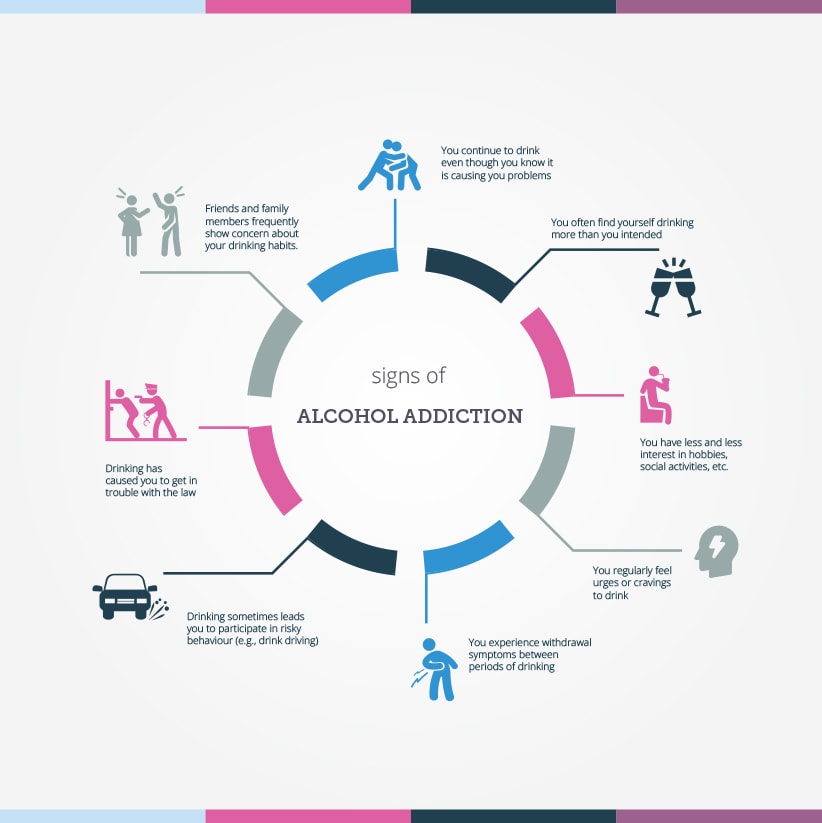What parts of the brain are changed by drug https://www.specificfeeds.com/user/ttcrecovery use?
Scientists estimate that https://youtu.be/NT2Uu2H1Ir8 genes, including the effects environmental factors have on a person's gene expression, called epigenetics, account for between 40 and 60 percent of a person's risk of addiction. Also, teens and people with mental disorders are at greater risk of drug use and addiction than others.
Physical substance abuse begins with resistance, which is when the body adapts to a particular amount of drugs and alcohol as well as needs a greater amount to feel the results. People that utilize high amounts of drugs and alcohol after becoming forgiving face the danger of ending up being reliant. Dealing with an eating problem typically entails a combination of dietary and also https://trello.com/transformationstreatmentcenter psychological therapy, along with medical and also psychiatric tracking.
What are the 5 characteristics of addictive behavior?

Their behavior signals that they are not coping with their environment or peers. No one knows the actual cause or causes of emotional disturbance, although several factors—heredity, brain disorder, diet, stress, and family functioning—have been suggested and vigorously researched.
The clinical version also considers that such disease may be the result of various other biological, sociological or psychological entities regardless of an insufficient understanding of the mechanisms of these entities. The complying with section is broken down into Pharmacotherapies, Behavioral Therapies, and also Behavioral Therapies Mainly for Adolescents.
Some conditions, such as sickle cell anemia or cystic fibrosis, are caused by a change, known as an anomaly, in a solitary gene. Some mutations, like the BRCA 1 and also 2 mutations that are connected to a much higher risk of bust and ovarian cancer cells, have come to be critical clinical devices in reviewing a patient's risk for significant illness. Medical scientists have actually had striking success at untangling the genes of these single-gene disorders, though searching for treatments or cures has actually not been as basic. The majority of conditions, including addiction, are complicated, and variants in various genetics add to an individual's overall degree of risk or security.
- A variety of factors affect the addictiveness of a substance, such as the degree of resistance an individual develops after repeated usage as well as the intensity of the drug's withdrawal signs.
- Cognitive therapy outgrew the speculative paradigm of cognitive psychology, and it was initially put on the treatment of anxiety.
- In a lot of cases, the biggest as well as most clearly missing elements of excellent, integrated, onsite COD therapy are mental disorder diagnosis and therapy.
What is the biopsychosocial model of addiction?
A disease concept is really a theory of addiction—a way of showing that addiction is like all the other things we generally accept as diseases. Although it may sound strange, when we say that alcoholism or drug addiction is a disease, we are not talking about the behavior of drinking or using.
Our clients receive dependency therapy customized to their personalized needs to take full advantage of medication rehabilitation success. As an example, the BPS-Pathways model explains how it is possible to conceptually different, specify, and gauge biological, psychological, as well as social variables, and also therefore seek comprehensive interrelationships amongst these elements. One particular application of the biopsychosocial model within health and wellness and medicine relates to pain, such that a number of elements outside a person's health and wellness might affect their perception of pain.
The Clackamas Area Mental University Hospital, Oregon.

NIDA uses the term dependency to define compulsive medicine looking for despite unfavorable consequences. Nonetheless, dependency is not a particular diagnosis in the 5th edition of The Diagnostic as well as Statistical Handbook of Mental Illness (DSM-5)-- an analysis manual for clinicians that contains summaries and signs of all mental illness categorized by the American Psychiatric Association (APA).
How addiction works in the brain?
The main difference between physical and psychological dependence is that physical dependence is marked by withdrawal symptoms that make you feel physically ill, while psychological dependence is marked by a persistent, strong urge to use drugs despite negative consequences.